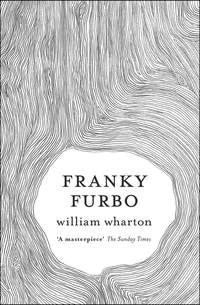
Полная версия
Tidings
I do the mantel over our fireplace. I varnish the huge table we built across the original millstones, still in place. I varnish our food cabinet; the door to the upper grange and, of course, all the floor; putting down planks so we can go from one part of the room to the other. I’m varnishing one of the supporting beams when Ben taps me on the shoulder.
‘Hey, Dad, look here, you forgot the firewood.’
That does it. The knot in my psyche is loosened up a little; also I’ve run out of varnish. We’ll have one half-shiny beam for Christmas.
Now, the mill smells like one of the ateliers around our place in Paris, where they fake original Louis Quinze and Louis Seize furniture.
After we eat lunch we give Ben his airplane. He’s thrilled. Together, we get it constructed by three o’clock. He says he wants his birthday dinner at Madame Le Page’s, the local restaurant up on the hill, but his dessert must be a real mother-baked cake down here in the mill. His preference for the main dish, if it’s possible, is pintade, French guinea hen. Lor goes across to Madame Le Moine’s to phone and see if it’s possible. She comes back smiling, humming, singing and skipping so I don’t even ask.
‘They’re also going to have french fries and jambon du Morvan for him. Madame Le Page is so considerate.’
Ben and I are up on Maggie’s hill adjusting angles of wings, turning ailerons and finger-winding the rubber-band-driven propeller, when Monsieur Boudine comes along the path up to us.
Actually, at that moment, I’m on a ladder trying to detach Ben’s airplane carefully from the high branches of an oak tree. As a result of bitter experience we always have a ladder and long stick up there with us. The stick has a forked V on the end of it to push gently up under the airplane and dislodge it. Trying to shake a fragile model plane out of a tree or pull it down through the branches can have disastrous effects.
In summer, we design and build our own, both gliders and power-driven. We’ve experimented with motor-driven planes, free-flight and U-control, but the noise, the smell of the gasoline, the thrust and speed of the machines weren’t what we wanted; our planes must be as much like birds as possible.
I’m up on our ladder with the stick, nudging the plane loose when Monsieur Boudine arrives. Ben is afraid of heights, so the really high hang-ups are usually for me. Finally I get just the right leverage and the plane comes fluttering down. Ben starts to run after it.
‘Wait a minute, Ben; let me down off this ladder first.’
Ben’s been holding the foot of our ladder so it won’t slip from the tree crotch where it’s wedged. I’m not too crazy about heights myself. I jump the last two rungs, walk over and shake hands with Monsieur Boudine.
I’m always uncomfortable with this man. Loretta is afraid of him and I understand why. There’s something wild there, something untamed, a slyness, secretiveness like a hunting animal. Loretta told me once he’s the archetype of what all women fear in all men, a genealogical throwback to a maleness which can’t be conditioned to society.
His family lives in the next village. He’s fathered nine children; seven girls and two sons. One of the sons, a really likable boy, would, every summer, give Ben and other children of the village, rides in an old-fashioned donkey cart. His name was Thierry but he was killed six months ago in a motorcycle accident.
When I first contacted Monsieur Boudine about our Christmas tree, I tried commiserating with him. The worst thing in the world I can think of is outliving any of our children. It’s ten times worse than what’s probably about to happen to us now.
Monsieur Boudine lifted his hat, a weather-beaten old-time brown felt hat with a light part where there was once a silk band. He wears it brim down, all the way round, so you can scarcely see his soft, deep-sunken, yellow-brown eyes. It’s as if he’s perpetually protecting himself from either the sun or a rainstorm.
He ran his hand over his full head of wavy gray hair and shook his head once, the way Pom Pom, his donkey, would shake off a single fly in his eye. Sometimes I think Monsieur Boudine’s feeble-minded, a fecund throwback of some kind. Lor might be right, she usually is. This head shake was his only response.
Mike claims Monsieur Boudine’s the original nature boy, knows every bush, tree, root, mushroom along all the paths through all the woods in the area. He spends entire days tromping alone through deserted countryside.
At this point, I can see Monsieur Boudine might know his plants, but he doesn’t have much idea what a Christmas tree’s all about. He’s dragging behind him a two-foot-high spindly pine spine that wouldn’t make a proper table ornament. He’s all smiles, for him. Most times his face is set in a passive, resistant mope, like a mule. He and Pom Pom are a natural pair.
I take the Christmas tree branch and try to act enthusiastic; Ben has turned away in total disgust. I try to give him some money but he declines because Pom Pom uses our fields. Uses is right. He ate the only sweet corn crop I’ve ever been able to grow and nibbled to bare sticks three young apple trees, two peach trees, an apricot and a cherry tree.
I take his olive branch of a tip to a pine tree. After all it is Christmas. But my mind is racing. Where can I get a genuine eight-to-ten-foot Christmas tree at this last moment? Can I con poor Ben on his birthday eve into a treenapping? It doesn’t seem fair, also he’s deathly afraid of the dark.
But, can I present a bush, a branch, a twig, as Christmas tree to our two daughters after transporting them six thousand miles, away from California and Arizona sunshine, their parties, their friends, their comfort and ease; dragging them unwillingly into this cold, winter-dark, lonesome valley in a stone-hard, wood-heavy, primitive mill beside a pond?
Something must be done! Monsieur Boudine clumps off into the woods, self-satisfied with his gift. I decide tonight’s the night and it’s probably best if I do it alone.
We are about a thousand feet above sea level here in the Morvan. About two-thirds of the hardwood forests, birch, ash, beech, has been cleared for pasturage; the rest, in steeper, less accessible sections, has been left intact. Formerly these woods were used as a source of wood for burning. Now, however, most of the people in the valley have shifted to oil for heat, very few still burn wood, even in the kitchen stove.
Recently, entrepreneurs, mostly Parisians, have been buying up the woods, bulldozing out the hardwood, selling it off to paper mills, or as firewood, then planting these woods with Douglas fir for Christmas trees. This had been going on for over fifteen years now.
Five years ago, to protect the area from this and other depredations, one of the first large parks in France was established. Le Parc Régionale du Morvan. Our mill is just included on the western edge. West of us, the forests are still being massacred. Young pines, five to ten years old, abound. The Morvan is becoming known as the Christmas-tree capital of France.
I’ve decided to snitch my tree from one of the Christmas-tree farms outside the protected park. I’ve worked up a whole rationale to defend my action; however, I don’t think it would hold in a French court.
But I’m desperate.
When I show our Monsieur Boudine ‘Christmas Tree’ to Lor she’s as disgusted as Ben and I are. Already we’d decided to trim our wings from the usual fourteen-foot monster we’ve always had jammed in the corner on the right side of the fireplace. It was impossible to trim, blocked the food cabinet, and overlapped the steps up to the toilet. This year we’ll have a smaller tree, maybe ten feet, and set it in the millstone on the other side. Right now, we’re not even close to ten feet.
Loretta says she’ll drive into Château Chinon and look for a tree. She also has some shopping to do. Fat chance, the French idea of a large tree almost reaches the navel. While she’s gone, Ben and I get out the decorations, wipe off the balls, unwind garlands, untangle electric lights. We’re preparing to decorate a giant tree no matter what. Irrational persistence can be a powerful force.
We also clean off and set up our crèche on the sill of the west window. I string one set of lights around it. Ben goes out to gather moss from trees and rocks for the inside and roof of the stable.
What we’re doing doesn’t have much to do with religion in a Christian sense. We’re playing dolls, acting out our husbanding, parenting impulse, making sure that baby is cozy and warm, surrounded by father and mother, warm breathing animals, the steam of urine and manure-soaked hay giving off the heat of fermentation. We live with it, this is not too far removed from the life all around us here.
When Lor comes back, no singing, humming; no skipping. No tree. There wasn’t a tree over three feet tall in the whole town. She says she almost stopped and gnawed down a tree beaver-style on the way home. I tell her I’m going out tonight to liberate a tree for us. She isn’t fighting me too hard. Loretta for all her seeming airs of gentility is a practical, pragmatic person when the going gets tough. It’s what makes her an effective first-grade teacher. It would also make her a good president or chairman of the Ford Motor Company.
That night we walk up to Madame Le Page’s for Ben’s dinner. It’s dark as it was when I went out to cut pine branches. All the better. On the way out from the mill our thermometer shows three degrees and there’s moisture in the air. I tell Ben it could easily snow again. He wants snow more than anything else for Christmas. I’m hoping it will hold off till the girls get down here. They’re driving our other car, a 1969 Ford Capri. This wreck makes my failing Fiat seem like a new Cadillac.
The meal is terrific; the pintade cooked perfectly. Ben has an entire liter of lemonade to himself while Loretta and I splurge with a 1976 Pouilly Fumé. The dining room is all ours; heads of deer, sanglier mounted around us. The restaurant is called La Fin de la Chasse and its main clientele are local hunters.
We walk down in the overwhelming dark and get home at about nine o’clock. I push the wood around in our fire to get it burning again, throw in another log, slip on my boots and prepare myself for the great adventure. Ben knows what I’m about to do but doesn’t volunteer. I don’t press; who wants to spend the evening of his fifteenth birthday in a French jail, and besides he’d probably spook me with his jumpiness. I’m bad enough, myself. With Ben along we’d probably wind up jumping into each other’s laps simultaneously.
I take our car key from the nail over the mantel, pick up a flashlight, let myself down into our cellar through the trap door, grab the saw from where I’ve hung it over the wood pile. I go out the door and slush my way through mud to open the door into our garage.
This time I wouldn’t mind too much if the car doesn’t turn over; but that engine has its ear tuned directly to the starter motor and coughs into life on the second try. The engine has become as easy to arouse as a nymphomaniac. But how would I know? My sexual experience so far indicates that even a certified nymph would just ho-hum me into insignificance. But I can get that Fiat going now, maybe it’s a good sign of things to come. That’s an accidental joke.
I get out to open the big doors, hoping the motor will conk while I’m doing this, but it keeps humming away. I back out slowly, maybe I’ll get stuck in the mud, but those tires grip like tractor wheels. All the omens say I’m in for it.
I drive up through Vauchot and out toward Corbeau. Five miles along I turn toward Monçaron. On my left looms a young pine forest, trees planted about two feet apart, mostly only about twice the size of the tree we already have, but several approach my ideal. I turn down the car lights to just parking indicators. It’s dark. I can scarcely see the road. I shut off my motor and coast the last fifty yards or so. This is a road with practically no traffic. Just ahead is a bridge so narrow one car can barely pass over it.
I sit there in the dark. I roll down both windows and listen; nothing but wind in the trees, the dripping of water from branches, and, now and then, the mew of a night hawk or the whoo-whoo of an owl. Maybe we should just use that Nevers tree, tie Monsieur Boudine’s tree to the top for extra height.
I reach back and get the saw. I let myself quietly out the car door, gently easing it closed.
I have Ben’s flashlight in one hand. It’s still so dark I can’t see anything. I’ll need to do everything by feel. I stumble, creep, crawl, crouch, my way off the road between trees. I try not to step on the smaller ones, while feeling left and right for high trees, higher than my head. I can’t be sure of anything.
I stop and listen. Would anybody actually be hiding in these woods in this wetness, in the dark, just to stop a failed philosopher from snitching a tree? I believe it! But I’ve got to flash my light. I should have come out earlier and marked a tree as usual, but with that damned Monsieur Boudine and his branch there wasn’t time.
I put my hand over the flashlight so just a beam escapes through my fingers. I spin slowly around, carefully scanning for a proper tree. I see one, just the right size, and bushy, twenty yards to the right. I switch off my light, expecting a voice from the dark, or the sound and feel of buckshot. I work my way over, doing the last ten yards on all fours. I hand gauge the thickness of the trunk, give one quick flash to make sure. It’s the right one, over ten feet tall. I scrape and clear away pine needles, dirt from the base of the tree, till I’m below ground level. When I’m finished cutting, I’ll spread dirt, pine needles, leaves over the ground-level stump, expert testimony to years of experience in knavery.
I pull out my saw, then lie on my back quietly, listening, looking up into the gloomy night. There’s nothing to be heard but those hawks, owls and the wind. I start sawing. It’s soft pine and not more than four inches in diameter; I saw through in less than a minute. Nothing like when we took down the last one, a veritable ship’s mast. That time, Mike and I took turns cutting and leaning back on the tree to keep our saw from binding. We were definitely pushing our luck. When we got home, Mike, vehemently, almost in tears, swore he’d never go treenapping at Christmas again.
As the tree starts to wobble, I steady it with my left hand and take the last two strokes one-handed. It falls over easily – right onto me. I lie back and smell greenness, feel cold drops of water, ice and snow drip onto my face. I’m totally sweated up, not so much from exertion but from nervousness. I’m also experiencing a sudden, deep sense of depression. Why am I here, what fear of life drives me on with this ritualistic fantasy? Where did I lose contact with reality as others perceive it? What can I do to make things right or, at least, learn some tolerance when they seem wrong to me? I drift back to my real situation under the tree. I’m trying not to cry.
I’m not even sure just which way it is to the road. I think it’s slightly downhill but I’m not positive. I can’t make out anything in the dark. How am I going to stuff this monster tree into my tiny car and drive home without anyone seeing me? I’ll take the back roads, past where Mike’s Geneviève and her family have their home.
I start crawling through the small trees, dragging my tree behind me like Little Bo Peep’s sheep’s tails. I flash my light once to make sure I’m going downhill. I’m totally lost and am convinced I’m going deeper into the forest.
Finally, I feel a strong decline and know I’m coming onto a road, some road at least. But the car isn’t there! I must’ve come out at a different angle from the one I went in. I can’t imagine anybody stealing that car without my hearing them start the motor. Yes, right, I even have that thought. I might be the world’s biggest worrier, the least effective one too. Or maybe I don’t worry enough. I know Lor is convinced I don’t pay enough attention to things; I probably don’t.
Is the car to the left or right? Is it even on this road? I peer into darkness. I stash my tree in a ditch. It’s most likely getting smeared with mud but I’ll wash it off later.
I peer and think I can make out a dim shape to my right. I walk along the road in that direction till I’m sure it is the car. Then I come back for my tree. I can’t find it. Right here is when I make my final decision never to go in for bank robbery, or murder, or anything serious.
But, I do finally find the tree, a bulge in the ditch, without flashing my light. I drag it and the saw behind me in a low crouching rush to the car. Now I’m vulnerable. If a car comes along, or anybody turns a flash on me, there’s no excuse I can think of for being out here running to my car along a road with a fresh-cut tree in one hand and a saw in the other.
I have no rope for tying this tree onto the car roof; that’s my kind of careful planning. I open the offside door and push the butt of my tree back in; over the seats, as far as I can into the back. I bend the top of the tree so it sticks out through the window and I can close the door. I carefully squeeze all the branches in, then ease the door shut. I lean the door tight closed and the inside floor light of the car goes out. I’m in the dark again.
By feel, I know the tip of the tree sticks out three feet past the windshield. I start edging around the other side to get in; I trip over my saw where I’ve left it leaning against the car. If I hadn’t tripped over it, I’d have left it there, driven off without it. Two wrongs do sometimes make a right, like negative numbers in algebra; that is, if stealing a Christmas tree can ever be considered a right.
I start the car, no problem, thank God, or whomever. I drive a hundred meters with just my parking lights on, then turn up my highs before I get to the narrow bridge. Now I’m away from the scene of the crime. I’ll just blind anybody who gets in the way with my highs. Ruthless, that I’ll be.
I cross the bridge, turn off onto the back roads, only slightly more than paths; twist, turn, up and down through what we used to call the enchanted forest, a veritable fairyland of ancient, hoary, moss-covered oaks, now a barren wasteland of three- or four-year-old Christmas trees. The shutters at Geneviève’s house are closed as I go by; but the grange door is open and some light seems to be coming from one shutter. Geneviève’s mother must be there; it’s going to be a tough Christmas for her. I just don’t have the guts to do what she did; I hope Lor doesn’t either. Maybe continuity means too much to me. I’m too inertial, not courageous, creative. It explains a lot.
I speed by and promise myself I’ll walk over the hill soon to wish her a Merry Christmas. I power my way in first gear up to Vauchot. There’s almost no snow on the road but some places are icy. I stay in first and glide down those last two kilometers to the mill. I’ve left the grange doors open; I’ll swing the car straight on in.
I get into town without seeing anyone. I twist and slither through mud into the grange; stop, turn off the motor, turn out the lights and sit a moment, quiet in the dark, giving my blood pressure a chance to arrange itself.
Then I get out, close the grange doors. Using my flashlight, I wend my way through motorcycles past and present, to the other side of the car, open the door; free the top of my tree from the window, and carefully work the bushy part from inside the car. I stomp the stump on the grange floor, holding it by the middle.
I open the little door-in-a-door to see if anybody’s out in the street. No one. I skip over the sill, through the mud, clutching the tree under my arm like a bride. I get through the cellar door and start pushing the tree backward up our steps ahead of me. I don’t want to break any branches going through the trap door. Lor holds the trap and pulls the lower end of our tree, helping me through. I come along behind and take it from her; the pillaging, rampaging, returned, conquering hero; crumpled, dripping, bristled, tousled, white hair in a flying mane.
I lift that mini-Nevers tree from the millstone, push it out the damside door onto our porch, then jam my newly cut tree into the millstone hole. It fits perfectly, tightly, stands straight up, buttoned-top tip almost touching the log ceiling under the loft; branches, glistening wet, spread to fill the space. It’s not too bushy and hasn’t a bare part; somehow there’s no mud either. Ben stares, he flashes his pulled-together squint which serves for a smile.
‘Now that’s a real Christmas tree, Dad. It makes me want to believe in Santa Claus again.’
Lor puts her arm around me, gives me a hard hug.
‘It’s okay with us if you want to, Ben, there probably is anyhow you know. Just ask your father; he’s the expert.’
‘No, I don’t think I could do it any more, it’s too hard. People don’t really want fifteen-year-old boys to keep believing in things like Santa Claus. It isn’t fitting.’
Lor pours me a small glass of Poire William. We light the candles on our table and turn off all the other lights. There’s only a glow from the two butane heaters and the light from our fireplace. It’s warm enough so we don’t need the electric heaters any more. Our inside thermometer on the newly varnished barometer says twenty degrees. The outside thermometer registers two above, still snow temperature. In my varnishing mania, I varnished the plastic match holder by the sink, including the striking surface on one side, so now we have a hard time striking matches. But we do get the candles lit.
Slowly, softly, Lor and I begin singing Christmas carols. Ben hums along with us. He has a deep melodious voice, perfect pitch, but it’s the first time he’s actually joined with us in singing. Only last year, he would’ve quietly absented himself, going out in the grange, or for a walk. Ben has a horror, an intense dislike for overt performance. It’s a feeling I understand, appreciate. There’s something sad, hard to be around, when people perform in a desperate attempt to prove that they are. I often cry at concerts or in a theater. It has nothing to do with the music or the play. I’m feeling sorry for the musicians, the actors, all those for whom that public performance of private fantasy is a way of life.
The temptation is strong to comment, congratulate, thank Ben for his participation on these, the last moments of his fifteenth birthday. But I don’t, it would be a violation. Not doing those things is most of what I’m trying to learn. I seem to lack a certain sensitivity, respect, for the inner needs of others; Lor always seems to know just what to do. It might be a part of what makes me a piss-poor philosopher and her an outstanding first-grade teacher. She almost always seems to do the right thing without trying.
We continue through the carols, very low-key, whispering, and I’m surprised how many of the words Ben knows, as he begins to sing with us; convinced it isn’t a competition or a command performance, but a mutual expression of good will. The tree stands mute, deep, dark green, mysterious; our representative from the great outdoors; an unwilling martyr to our desire for expression of oneness with the world, with all living things.
I feel calm inside. I resolve to hold tight the promise I made Loretta and keep my mouth shut when our daughters start working their thing off. Both our girls are heavily committed to the emancipation of womankind. Brothers and fathers are automatically guilty and are expected to absorb the brunt of the assault. Assault I can usually handle but directed insult triggers me if I’m not careful. The problem is, after twenty-five years of philosophical nit-picking, I’m a veritable demon at dispute, and it’s frustrating for the girls, especially Nicole.
This is what happened two Christmases ago in California. Loretta walked away and went to bed, she refuses to let herself get involved in nonproductive, noncommunicative conflict situations. I wish I could be so smart, I think it’s the contentious Irish in me. Nicole gets especially hostile after she’s had too much white wine. She’s so much like Nora, Loretta’s late sister, it can be frightening.







